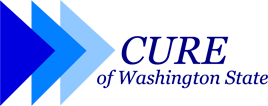It’s not about what Johnny can learn from his e-tablet; it’s about what the e-tablet can learn about Johnny.
Early in October (2014) the federal agency, the National Science Foundation (NSF), awarded $4.8 million to a consortium of universities whose task it will be to develop an extensive data collection, storage, and sharing system. The purported goal? To collect massive amounts of data on students to improve instruction.
The data project is called LearnSphere–a typically ambiguous name. What is being learned? It appears that faceless bureaucrats and researchers will learn information about the students that the students and parents have no idea is being collected–and without parents’ or students’ permission. Data will be collected on teachers as well. Will they have the option of refusing? Most likely not.
A senior advisor at the NSF states, “”We’re now able to collect massive amounts of information on individual students we weren’t able to collect 10 years ago.”
Education Week writer Benjamin Herold writes that the data “would likely include, for example, records of every mouse click a student makes when using a software program and information demonstrating a student’s thought process..” and quotes the lead researcher as saying, “we have shown some pretty interesting results in being able to detect different [emotional] states from keystroke data.” (emphasis added)
This grant is only one of several NSF grants dedicated to data-collection.
Read the article.


